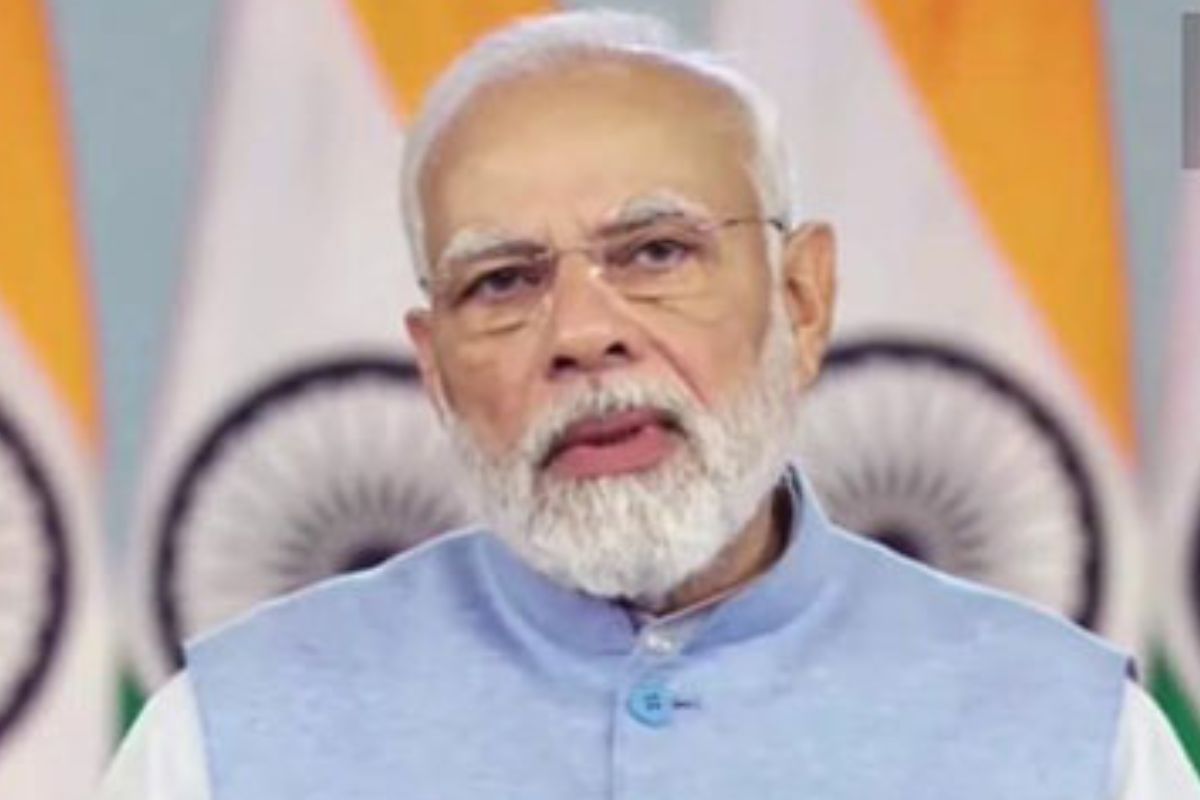LS polls: PM Modi to campaign in K’taka, Maharashtra today
Intensifying the campaign for the Lok Sabha elections, Prime Minister Narendra Modi will address four public meetings on Monday -- one in Karnataka and three in Maharashtra.
The G20, PM Modi said, has a critical role to play in finding the right balance between growth and efficiency on one hand and resilience on the other.

Against the backdrop of the widening gulf between the Western world and Russia over the Ukraine conflict, Prime Minister Narendra Modi today appealed to the G20 nations to build a consensus on major global challenges and not allow issues they could not resolve together to come in the way of those they could.
”As you meet in the land of Gandhi and the Buddha, I pray that you will draw inspiration from India’s civilisational ethos – to focus not on what divides us, but on what unites us all,” he told the foreign ministers of the G20 countries holding their two-day meeting here ahead of the G20 Summit later this year. The meeting, hosted by External Affairs Minister S Jaishankar, was attended, among others, by the foreign ministers of the US, UK, Russia and China.
Noting that the G20 meeting was taking place at a time of deep global divisions, Modi said it was natural that the discussions of the foreign ministers were affected by the geo-political tensions of the day.
Advertisement
”We all have our positions and our perspectives on how these tensions should be resolved. However, as the leading economies of the world, we also have a responsibility towards those who are not in this room. The world looks upon the G20 to ease the challenges of growth, development, economic resilience, disaster resilience, financial stability, transnational crime, corruption, terrorism, and food and energy security. In all these areas, the G20 has the capacity to build consensus and deliver concrete results,” he added.
Acknowledging that multilateralism was in crisis today, the PM said the architecture of global governance created after the Second World War was to serve two functions. First, to prevent future wars by balancing competing interests. Second, to foster international cooperation on issues of common interests. ”The experience of the last few years- financial crisis, climate change, pandemic, terrorism, and wars clearly shows that global governance has failed in both its mandates.”
He said it must also be admitted that the tragic consequences of this failure were being faced most of all by the developing countries. ”After years of progress, we are at risk today of moving back on the Sustainable Development Goals. Many developing countries are struggling with unsustainable debt while trying to ensure food and energy security for their people. They are also the ones most affected by global warming caused by richer countries,” he added.
The PM said the world has in recent times seen the most disastrous pandemic of a century and the loss of thousands of lives in natural disasters. ”We have seen global supply chains break down during times of stress. We have seen stable economies suddenly overwhelmed by debt and financial crises. These experiences clearly show the need for resilience in our societies, in our economies, in our healthcare systems, and in our infrastructure.”
The G20, he said, has a critical role to play in finding the right balance between growth and efficiency on one hand and resilience on the other. ”We can reach this balance more easily by working together,” he said, hoping the foreign ministers would have ambitious, inclusive, action-oriented discussions by rising over differences.
Advertisement